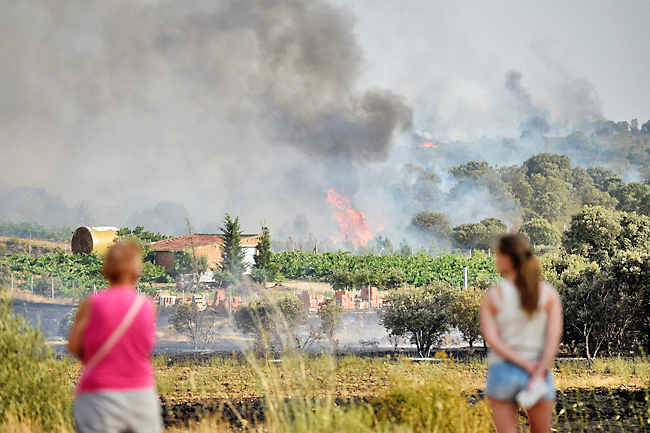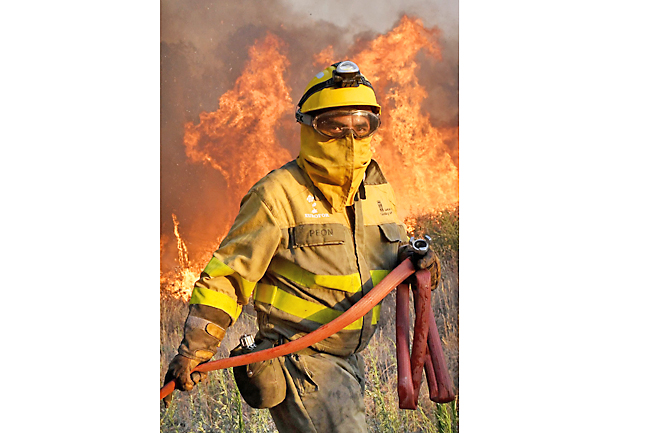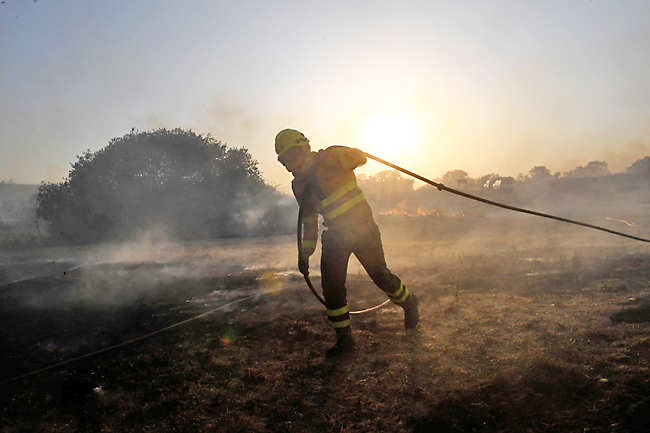MADRID (AFP) – With climate change making devastating wildfires more likely, experts warn Spain and Portugal need to better manage their forests to stop vast swathes of land from being torched every year.
Close to 200,000 hectares (495,000 acres) of forest in Spain have been lost to fire so far this year, more than in any other nation in Europe, according to the European Union’s satellite monitoring service EFFIS.
Portugal has lost just over 48,000 hectares to flames, the third highest amount in Europe that is only surpassed by Romania. The spread of wildfires depends on the weather, the type of vegetation and the topography of the land, said forest campaign manager with Greenpeace Spain Monica Parrilla.
“Right now we have the ideal context for very intense fires,” she added in a reference to the scorching temperatures, strong winds and drought conditions Spain and Portugal have faced.
And the only factor which humans have some control over is the vegetation, Parrilla added.
“When it is dry, it feeds the fire. We need to focus on this flammable vegetation,” she said.



Parrilla called for bush to be cleared in woodlands either manually or through controlled burns, and for more firebreaks – a barrier of open land intended to check a wildfire.
To be more “fire resistant” forests also need to be made up of a greater variety of trees, she said.
Most forest area in Spain and Portugal is made up of monocultures of eucalyptus and pine trees, which are favoured by the paper industry but are highly flammable.
Around 36 per cent of both Portugal and Spain’s land mass is covered by forest, according to World Bank data.
And about one-quarter of Portugal’s forests are eucalyptus, a fast-growing tree native to Australia. Fully 83 per cent of the land ravaged by flames in Portugal between 2011 and 2020 consisted of pine and eucalyptus trees, according to figures from the Institute for Nature and Forest Conservation.
Ecologists in Portugal are calling for the planting of more indigenous tree species that better resist fire such as chestnut, cork and oak trees.
Financial incentives should be given to small producers “so they can wait several years for these more resistent trees to become profitable,” said Marta Leandro, vice president of Quercus, Portugal’s biggest environmental group. This would prevent them from “systematically turning to eucalyptus”, she added.
Dwindling rural populations are also contributing to the neglect of forests, increasing the fire risk.
Many fields are abandoned and undergrowth left wild because the landowners are too old.
There are also fewer farm animals such as goats which help clear the land of scrub. The biggest wildfires in Spain have been in the most sparsely-populated regions like Extremadura in the west and the northwestern region of Castille and Leon.
Spain’s Ecological Transition Minister Teresa Ribera on Thursday stressed the importance of rural residents, saying they are “the real guardians of the land who are on the frontline in the prevention of fires all year round”.
Similar views have been expressed by politicians in neighbouring Portugal, where forest fires in 2017 killed over 100 people.
Portuguese Interior Minister Jose Luis Carneiro said last Tuesday that the “enhancement of rural development” was key to “fighting fires”.
While goats and sheep are already being used in some parts of Spain and Portugal to clear undergrowth, ecologists call for the development of extensive livestock farming.





